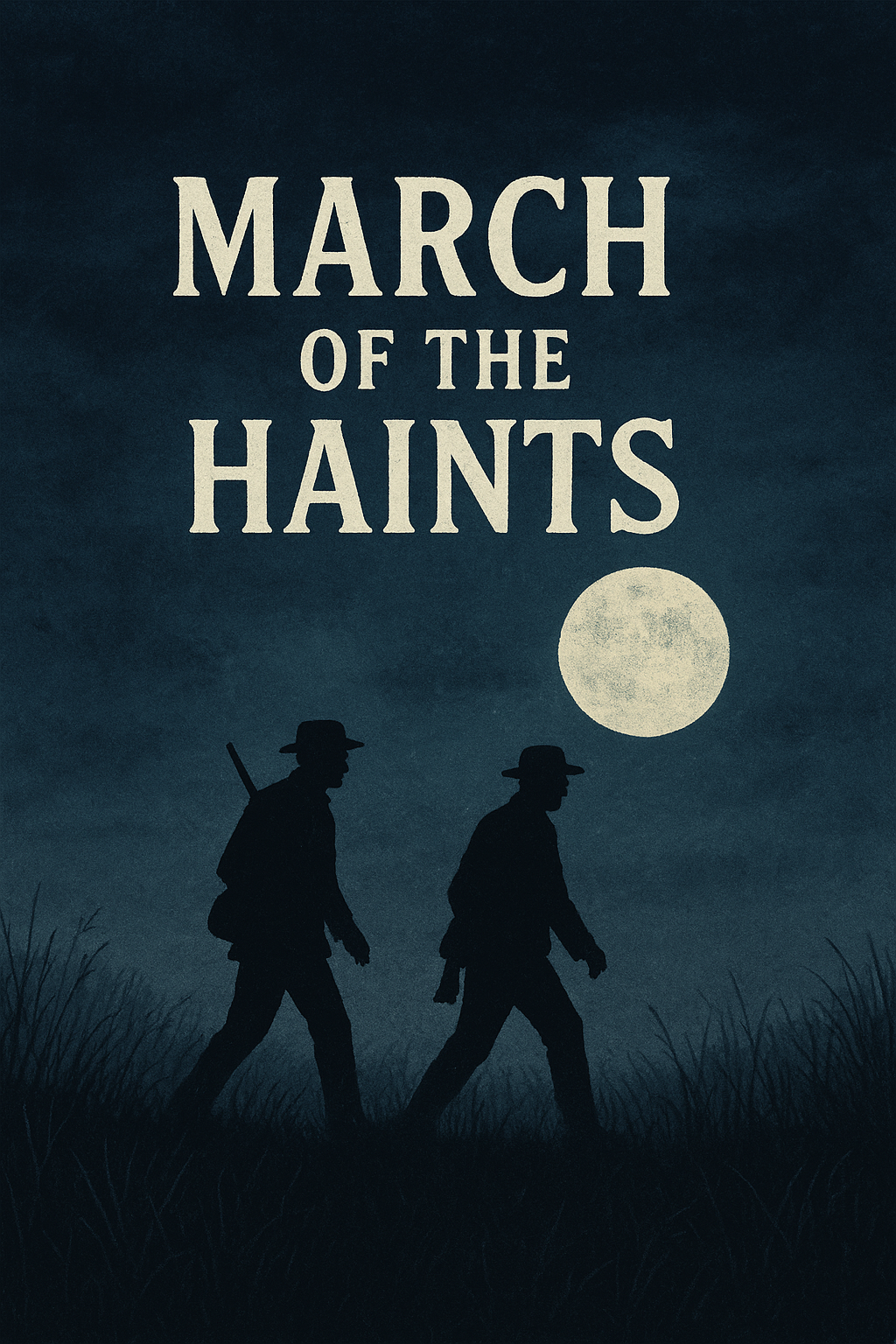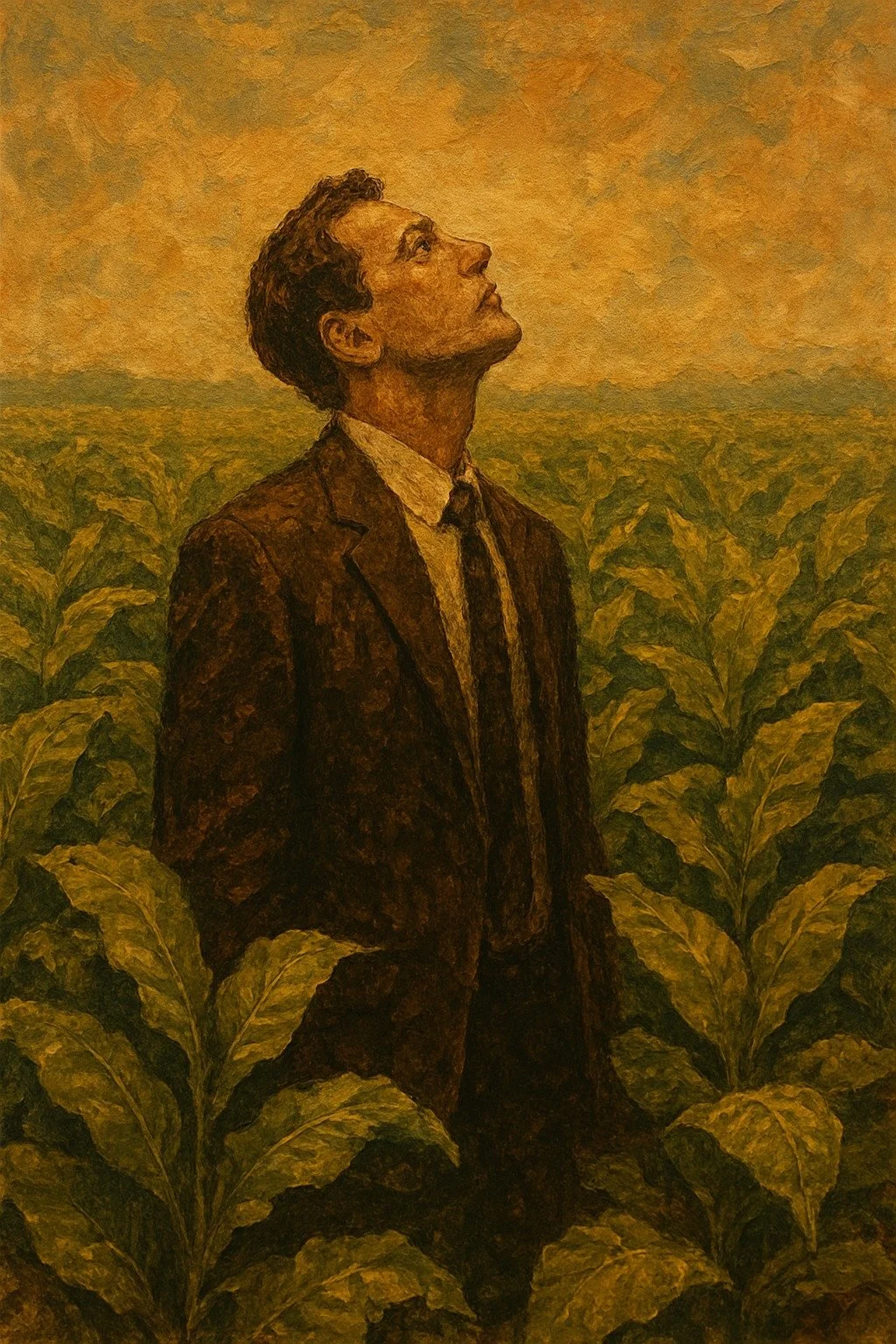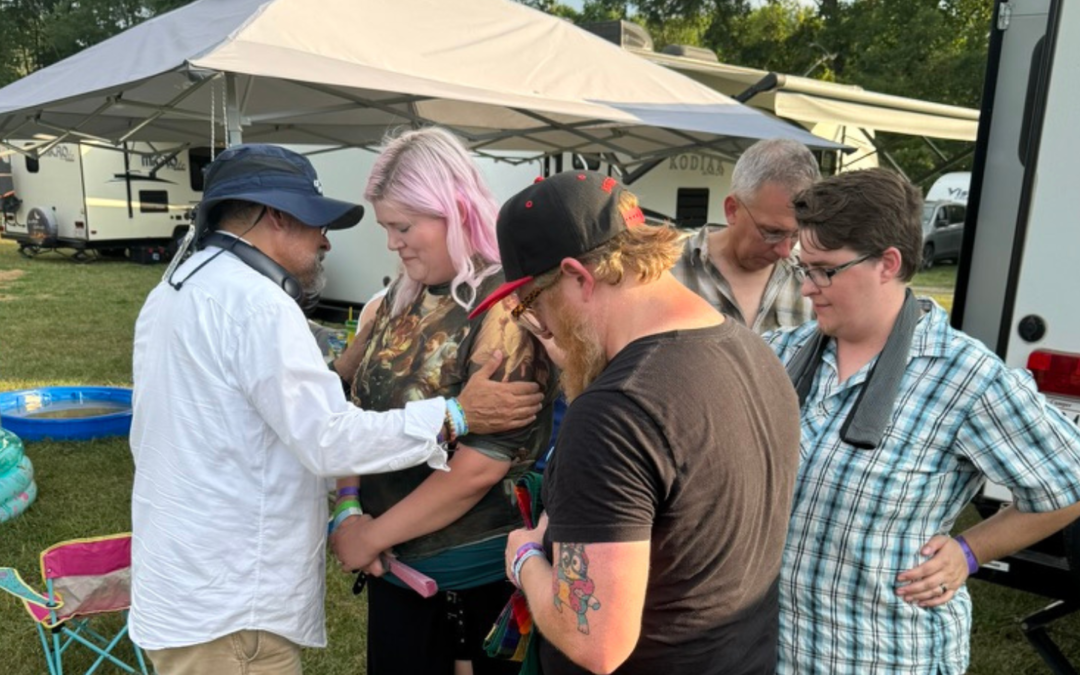Her last name was several feet tall. Spelled out in chipped bold letters that had seen more hurricane winds than fresh coats of paint. Colored red as if Jesus had spoken them.
WOMBLE the sign read above the hardware store.
A short proclamation followed underneath.
“If we don’t have it, you don’t need it.”
A provincial pushback to those believing you had to ride into the city to have your needs met.
Because of this, I knew her name before I knew her. I mouthed it between expletives while traveling down U.S. Route 421 in Eastern North Carolina. A highway in name only, the modest two lanes of cracked pavement attracted tractors with torched-skin pilgrims perched on top, along with boat-sized Oldsmobiles piloted by petite blue-haired captains. Their heads obscured by towering front seats. Their odometers set 10 below the recommended speed limit.
In vacation Bible school, I was taught the book of Proverbs says the Lord “hears the prayers of the righteous” and I knew gripping the steering wheel that I must have been counted amongst the wicked. My pleas for traveling mercies in the form of fellow speeding motorists went unanswered as I moved like molasses in January past streets connecting old neighborhoods to old families with community ties as strong as buffalo leather.
Hope is all you have sometimes, and while I hoped for an upcoming passing lane, I’d see the Womble sign at the town limit and know my destination was getting close. I was starting to dip my toes into divinity studies at a small university with Baptist roots. My enrollment coincided with my first call at a church just down the road from the school. Seeing the Womble name let me know I was almost where I needed to be. It became a beacon of reassurance.
So would Mrs. Womble.
I met her in the same place men have claimed to meet good women in the South for years — I came across her at church.
I was the young, eager, fresh-out-of-crazy youth pastor. She, the stalwart Sunday school teacher who’d already forgotten more Bible verses than I’d ever memorize.
I could count on her presence at church like I could the tin tiles on the sanctuary ceiling. She was a fixture before my time there and after. A living piece of stained glass that had somehow managed to break from her housing, she walked among us, beaming a holy radiance I could see but like the Apostle Paul couldn’t describe.
“Not once did I ever have to guess what was on Mrs. Womble’s mind.”
In her incarnate form, her hair appeared stark black, like a buzzard draped across a clear blue sky. She had as many pantsuits as Golden Corral has buffet options and glasses highlighting mischievous eyes. Her genuine but slightly upturned smile let you know she knew something you didn’t. Her facial expression always appeared amused, and she spoke with a sincere but frank honesty that I wish more politicians invoked. Not once did I ever have to guess what was on Mrs. Womble’s mind.
The two of us embodied different times, qualities and theological convictions but got along fine. She seemed to favor me. Perhaps I reminded her of a grandchild who meant well but didn’t have good sense. Southern grannies have a way of loving people through their shortcomings. Be it toleration or acceptance, she lined up every Sunday outside the narthex to shake my hand and shake me out with her kind and straightforward quips.
“You get into any trouble this weekend, Justin,” she asked?
“None that I can tell you about Mrs. Womble,” I said back.
“Well, if you can’t tell me, tell somebody, and then have them tell me,” she said. Her hand was soft, from what I imagine was the daily application of moisturizing lotion. However, her grip was firm and as secure as a fox’s hold around a chicken’s neck.
I knew she didn’t fully get or understand me, but I never doubted she respected me.
And that’s something I don’t always feel in churches anymore.
When it came to faith, hers was uncomplicated. Sure of who Jesus was and her salvation through him, Mrs. Womble never seemed to fear death. Often talking openly about dying in such a matter-of-fact manner, you would have thought she had it scheduled on her calendar.
“When it came to faith, hers was uncomplicated.”
One evening at a deacons’ meeting, she laid back the ears of those gathered around the table while discussing the future of her church.
“What do you think?” the committee chair asked Mrs. Womble. “What do you want to see happen in the next decade?”
“Well, I’ll be dead by then,” she said. “I’ll be gone on down the road to glory. So I ain’t that worried about it. That’ll be up to y’all, and you better get it figured out.”
If I hadn’t seen her with my own eyes, I would have sworn she was a fictional character. Easily lifted from the pages and table settings of Fannie Flagg’s Whistle Stop Cafe.
My time in this community saw turmoil. A thundercloud of controversy had gathered over the steeple. The senior pastor had stepped down or been dismissed, depending on who you asked. My arrival came in concurrence with such ill news. Trouble had been brewing for some time, but I was the crow flying ahead of the storm.
In the by and by, I helped fill an empty pulpit while an interim pastor could be arranged. Afterward, I continued to preach the early service regularly and occasionally at 11:00.
If ministers are honest with themselves, they’ll tell you those who sit in their pews rarely remember their sermons. Hell, I don’t know the one I preached last week. Likewise, if most congregants are honest, they’ll admit the same.
What people do remember is how you show up for them when they need you. They’ll never forget you if you say yes to marrying their son who hasn’t stepped inside a church in years or if you sit with them as they mourn the loss of their mother. Folks will recall your name with ease, maybe even remember what you were wearing the time you visited them in the hospital when they had a scare with a series of life-changing chest pains.
“I did what I wasn’t qualified to do but tried nonetheless.”
In this way, the people of that church came to know me. I did what I wasn’t qualified to do but tried nonetheless. They saw my efforts and appreciated them. I already had their love but earned their trust during that rocky season.
Lord knows I didn’t give them much to work with.
I’ve never had what some might call a normal appearance. My wardrobe always has been controversial. In middle school, I’d sneak into my mother’s dresser and confiscate a pair of her pantyhose. Arriving at school, I’d slip them on under a pair of shorts, and promptly rip holes in different sections. In warm weather, I donned T-shirts that read Smashing Pumpkins, Nirvana and Led Zepplin on top of heavy thermals. I bought a biker’s wallet from the mall and attached a chain to it big and heavy enough to keep a mastiff in place. My green and white Converse Chuck Taylor shoes were covered in writing and falling apart. I used duct tape to hold them together.
If this wasn’t enough, the pièce de résistance was my hair. Already an exotic Opie Taylor red, I grew it to my shoulders and dyed it with powder paint I found in shop class. And then, on a whim from an MTV music video, I shaved my head save one small section at the crown. This I braided à la David Carradine’s character in the show Kung Fu.
“He’s creative,” my mother said.
“He looks homeless,” my father said.
My younger sister said nothing. Content to fly low under their parental radar.
I got out of that phase and into others. By the time I stood behind a pulpit weekly, I’d toned some things down. I still sported a chain wallet — smaller, mind you — and decided to push out and adopt a bushy beard to cover half my face. My hair was still long but now stood in the opposite direction. It was high enough to make Dolly Parton proud and Snoop Dog blush.
“It was the hair that caught Mrs. Womble’s attention.”
It was the hair that caught Mrs. Womble’s attention.
It was after a service where I led worship. I’m sure what I said was only half heretical. Expectations are low when you’re a wet-behind-the-ears preacher.
I made my way to the open doors at the front of the church, watching the faithful exit and enter a world that needed them. Over their heads, I glimpsed a man named Darrell talking with Mrs. Womble. Darrell was the person every church needs to have. He kept things in motion, moving forward, doing the work behind the scenes. Country churches are filled with such saints as they are with altar calls and preheated baptismal pools in case a soul needs a sanctifying dunk after a rowdy Saturday night. Darrell was a big supporter of my being there, even when I didn’t fit the demographic.
Mrs. Womble caught Darrell by the arm and pulled him off to the side.
Looking at him, she said, “Well, that wasn’t bad at all, was it?”
“No, ma’am, I think he’s going be all right.”
“Yes, I think he’ll make a fine preacher, however …,” her voice trailed off.
Darrell smiled in the polite way a Southerner smiles when they know the other shoe is about to drop.
“However, she continued, “I wish he’d do something about that hair. My God, it looks like a squirrel’s nesting in it.”
Darrell hollered with laughter before adding, “Yeah. It’s pretty wild.”
They stood in silence. A few seconds passed before Mrs. Womble spit out a little more wisdom wrapped in grace. “But if that’s the only bad thing I can say about him, I suppose I shouldn’t say nothing at all.”
Her quietness a testimony to her affirmation of me. Her maturity and humility in knowing when to look past the clothes, the beard, the massive pompadour and see who was underneath it all was a witness to her character.
My grandmother would say she was raised right.
Later, standing on the church’s steps, Darrell would share with me this story. Tear stains were still on his cheek from laughing so hard over her deep and rich observation.
“That old woman thinks a lot of you. You know that, right?”
“I know she does,” was all I could say.
I’ve known people like Mrs. Womble all my life.
“I’ve known people like Mrs. Womble all my life.”
Such folks tend to have arms that are always open and tables with an extra setting just in case some unplanned company stops by.
They are fashioned from bloodlines that struggled to make ends meet, worked hard, did better and wanted even more for their children. They reared families where unconditional love was doled out like second helpings. They knew their God so intimately that their certainty intrigued and worried me. It still does. Theirs is a confident faith, and I often find myself jealous at how easy it seems to come to them.
I’ve learned a lot from being around such people. I was raised by some. The kind that if they had a dollar, you had a dollar. They supported you, gave you the benefit of the doubt and made you feel you were part of something even if they didn’t know exactly how you fit in.
People like Mrs. Womble don’t wait until Sunday morning to share this way of living.
They preach this gospel all the time.
There’s a popular misconception that ministers make a lot of money. People hear about megachurch pastors with private jet planes and million-dollar homes. They watch televangelists clasp their hands together for prayer and catch sight of the Rolex watch peeking out from under a suit sleeve that costs more than a used Subaru. I’m aware those high holy rollers are out there, but that ain’t the norm. Most ministers I know are overworked and underpaid. They carry debt from seminary and the worries of the people they’ve been called to shepherd.
Church work won’t break your back like a day hauling concrete mix, but it’ll cause you to stay up at night. You lose sleep over the heaviness of the world. You lay in bed between stress and anxiety, a toxic ménage à trois that will suck the life out of you. You don’t do it expecting to get rich or produce a diverse and lucrative financial portfolio. Still, there’s hope you have enough to do a bit of living and enough to cover the cost when they place you six feet under loose cemetery sod.
I pray that when that day comes, I’ll be well off enough to afford extra lettering on my tombstone so that my epitaph will read as follows,
Here lies the Reverend Justin A. Cox
Husband, Father, Cornbread Connoisseur, and Holy Agitator
A man who, for a time, left a Mrs. S. Womble speechless
It’s not quite the feat as storming San Juan Hill or hitting the shores of Normandy, but it’s an accomplishment I’m sure only a select few share.
I never would imagine I could teach Mrs. Womble anything about faith, but maybe I did, and she taught me something in the process too.
She showed me even the most steadfast of saints are open to change.
And I showed her a heavenly halo can be mistaken for a squirrel nest.
It really does take all kinds.




















